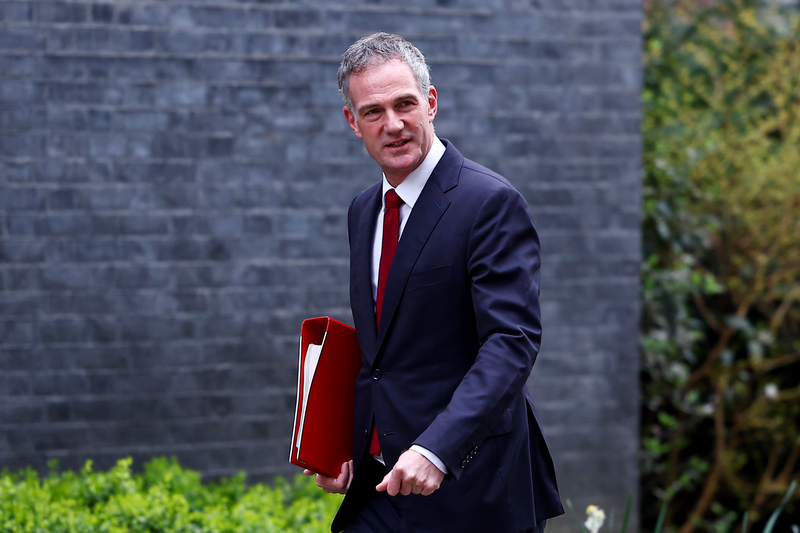On January 17, 2024, the UK Court of Appeal confirmed that section 26 of the Competition Act 1998 (CA98) allows the Competition and Markets Authority (CMA) to compel the production of information and documents from companies located outside of the UK.
Key takeaways
- The Court of Appeal confirmed that the CMA has the power, using a notice under section 26 of the CA98 (a s26 notice), to compel companies with no UK connection to provide it with information as part of a competition law investigation.
- UK-based companies cannot use contractual or other restrictions on accessing information held within the group outside the UK as a reason for not complying with a s26 notice.
- A previous decision by the Competition Appeal Tribunal (CAT) holding that the CMA could not compel overseas companies to comply with a s26 notice prompted the Government to introduce an amendment to the Digital Markets, Competition and Consumers Bill to expressly confirm the CMA’s information gathering powers are extra-territorial powers (see our January 2024 update, also on GRIP, Proposed legislation would radically expand the UK’s class action regime). The Court of Appeal’s decision is not expected to affect the amendment’s inclusion.
Background
The question of whether the CMA’s information-gathering powers have extra-territorial effect arose in the context of the CMA’s investigation into suspected anti-competitive conduct relating to end-of-life vehicles.
As part of its investigation, the CMA issued s26 notices compelling BMW (UK) and parent company Bayerische Motoren Werke AG (BMW AG), and Volkswagen Group United Kingdom Limited and its parent Volkswagen Aktiengesellschaft (VW AG), to provide it with information. Each of BMW UK, BMW AG and VWUK and VWAG received a s26 notice addressed to them and “other legal entities” within their “undertaking” (which is a well-known concept under EU law that refers to the single entity engaged in economic activity, regardless of whether there are multiple legal or natural persons).
- BMW’s UK-based subsidiary produced information responsive to the s26 notice but indicated that it was not able to access documents held by BMW AG or any other BMW entity. The CMA issued BMW AG a penalty notice for its failure to comply with the s26 notice, which BMW AG appealed to the CAT.
- VW AG objected to the notice issued to it on the basis that the CMA did not have the power to compel foreign companies to produce documents located overseas and sought judicial review of the CMA’s decision to issue the notice in the High Court.
As the two cases raised substantially similar grounds, the matters were heard together in a joint sitting of the CAT and High Court.
The CAT’s ruling
At first instance, it was held that the CMA’s powers under s26 CA98 were “aggressively territorial” and that the provision had to be interpreted consistently with the presumption against extraterritoriality. As a result, the CAT concluded that the CMA did not have the power to compel BMW AG and VW AG to provide it with material as they had no connection to the UK (see our February 2023 update).
The CAT was troubled by the inexorable consequence of the CMA’s construction that “a single section 26 notice, addressed to an undertaking, would trigger an obligation to respond in every single legal or natural person within that undertaking, provided only that a single legal or natural person within that undertaking had a UK territorial connection“.
The CAT’s decision effectively curtailed the CMA’s investigative powers in respect of foreign companies and information held by foreign companies which their UK-based subsidiaries did not have the means to access.
The Court of Appeal’s decision
Given the impact on the CMA’s investigatory powers, the CMA appealed the decision. The Court of Appeal considered two issues:
- Are the CMA’s information-gathering powers under s26 extra-territorial in effect?
- Does a s26 notice impose obligations on a UK-based entity to collect responsive material throughout the wider group, even if the entity does not have physical or legal access to that information?
The CMA’s information gathering powers are extra-territorial
Unlike the CAT, the Court of Appeal found that Parliament had intended s26 to have extra-territorial effect and that the CMA could issue s26 notices to foreign-based companies with no connection to the UK, provided the CMA suspected that anti-competitive conduct has, or had, taken place that was, or was intended, to be implemented in the UK.
The Court of Appeal focused on the context and purpose of the CA98, specifically, the Chapter I prohibition and CMA’s ability and powers to investigate suspected breaches of CA98:
- The Chapter I prohibition: it was common ground between the parties that the Chapter I prohibition (s2(1) CA98) has extra-territorial effect. The prohibition applies to agreements, decisions or practices which are or are “intended to be implemented in the United Kingdom“. The Court of Appeal noted that the inclusion of a requirement of implementation in the UK under s2 CA98 meant that the provision explicitly has extra-territorial effect. The Court also referred to the equivalent European provision (Article 101 of the Treaty on the Functioning of the European Union) which has been held by EU courts to be extra-territorial.
- The CMA’s investigatory powers: s25(2) CA98 gives the CMA the power to conduct an investigation where it has reasonable grounds for suspecting an agreement, decision or practice may affect trade within the UK and has the object or effect of preventing, restricting or distorting competition in the UK. It was similarly common ground between the parties that this provision has extra-territorial effect (for example the CMA can investigate cartels and anti-competitive practices outside the UK that may have an impact on competition in the UK).
The Court of Appeal noted that these two provisions guide the interpretation of the CMA’s investigative and enforcement powers within CA98. It described the Chapter I prohibition and CMA’s investigatory powers as being two separate building blocks, both of which are extra-territorial.
In relation to the CMA’s information-gathering powers, the Court of Appeal noted that s26(2) is framed by the words “for the purposes of an investigation” (for example an investigation under s25(2) of CA98) and that the CMA has the power to require “any person to produce to it as specified document or… specified information“. The Court noted that a reference to “any person” has no territorial limits imposed upon it. As such, the Court of Appeal held that Parliament “intended section 26 to have the same territorial effect as sections 2 and 25“.
The Court of Appeal strongly emphasized the policy considerations which support its conclusion: notably, that a restrictive interpretation limiting the CMA’s information-gathering powers to UK connected entities would be a “gaping lacuna in the effectiveness of the CMA to perform its statutory function“, which would create “a perverse incentive for conspirators to move offshore to organise cartels directed at harming the United Kingdom market and they would be more or less immune from investigation“.
Consequently, the Court of Appeal concluded that the CMA’s powers to compel information are not limited to companies with a UK connection and the CMA is able to compel foreign-based companies to produce information pursuant to a s26 notice.
Are UK-based entities required to produce material held by other entities in their group?
BMW AG and VW AG had sought to argue that “person” should be read consistently with the separate entity principle enshrined in corporate law, meaning each corporate entity, even if related, has discrete legal personality. BMW’s UK subsidiary indicated that it could not access documents held by BMW AG or any other BMW entity subject to the notice.
The Court of Appeal rejected this argument, noting that Parliament had expressly rejected the separate entity principle by referring to “person” as including an “undertaking“, which Parliament chose deliberately to “impose an obligation [to respond to a s26 Notice] upon the widest array of entities“. An “undertaking“, while not defined in CA98, is a well understood concept of EU law which imposes joint and several responsibility for entities that form part of the undertaking. Parliament intended to incorporate this concept by including “undertaking” in the definition of a “person“.
The Court explained that when the CMA serves a notice upon an entity (such as BMW UK), “it does so upon the basis that the entity has access to all the documents and information of the undertaking as a whole” and that it is “not open to the entity to raise by way of defence that it has no power, for example in traditional company law terms, to compel the production of documents or information from elsewhere within the undertaking“.
A s26 notice served on a UK-based subsidiary, addressed to the undertaking of which the subsidiary forms part, therefore requires that subsidiary to produce responsive information from within the whole corporate group.
Implications
The decision gives the CMA and other concurrent regulators the power to continue to use compulsory information-gathering powers in CA98 investigations including in respect of foreign-domiciled companies, and confirms that:
- foreign-domiciled companies with no UK connection can receive, and must respond to, s26 notices issued by the CMA; and
- UK-based entities cannot rely on legal or contractual restrictions to avoid fully complying with a s26 notice requesting information from the entity’s broader group (including non-UK entities).
The Court of Appeal did not make final orders in respect of BMW AG and VW AG but it is likely that they will each be required to produce material to the CMA (subject to any appeal to the Supreme Court), including information held within their wider corporate groups.
The decision is also likely to have implications for foreign-domiciled companies who have declined to (fully) comply with s26 notices issued by the CMA following the first instance decision in February 2023. The decision may also affect a broader range of information-gathering powers, including those under the Enterprise Act. It is possible that the CMA and concurrent competition regulators may re-issue foreign-domiciled companies with new or revised statutory requests in light of the Court of Appeal’s decision, in particular if they consider that the approach adopted to responding to the requests may have been unduly narrow.
Impact on the Digital Markets, Competition and Consumers Bill
Ahead of the Court of Appeal’s decision, the UK Government had already taken steps to “fix” the CMA’s powers to ensure they are extra-territorial in effect. Amendments to the Digital Markets, Competition and Consumers Bill expressly confirm that information gathering powers under the Competition Act and Enterprise Act are extra-territorial (see our January 2024 update). The Bill is currently progressing through the House of Lords.
The Court of Appeal’s decision is not expected to affect the amendments to the Bill as these clarify that the CMA’s (and, where applicable other regulators’) information-gathering powers are extra-territorial across the suite of their information gathering powers, including pursuant to market studies and investigations and mergers reviews under the Enterprise Act.
Anna Morfey is a partner, Christopher Eberhardt is a counsel, Fiona Garside is a senior expertise lawyer, and Hayden Dunnett is an associate, in the antitrust, regulation and foreign investment practice at Ashurst.

















